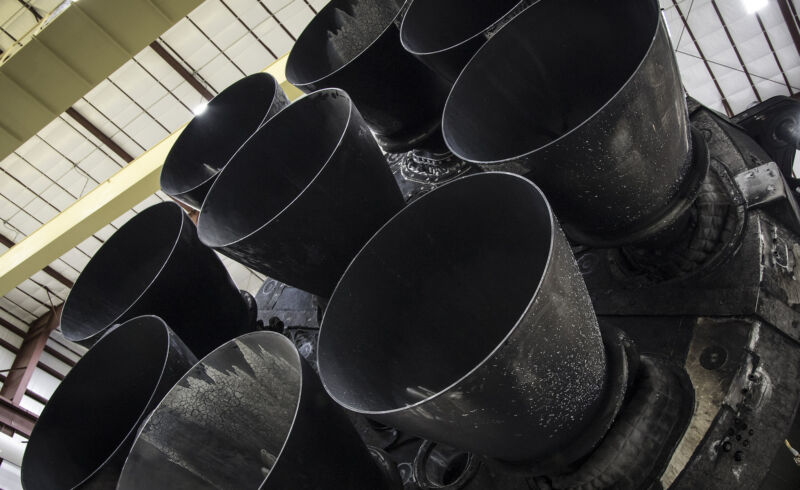
NASA and SpaceX confirmed on Wednesday that they are targeting November 14 for the launch of the Crew-1 mission that will carry four astronauts to the International Space Station.
Originally scheduled to launch on Halloween, NASA delayed the launch after an engine issue aborted an October 2 launch attempt of a Falcon 9 rocket, at T-2 seconds, carrying a GPS III satellite for the US Air Force.
During a teleconference with reporters on Wednesday, SpaceX's Hans Koenigsmann explained what happened with the October 2 launch abort and what has been done to address the issue going forward.
Two of the rocket's nine first-stage engines ignited early during the early October launch attempt, and this triggered an automatic abort of the engines. (Had the abort not triggered, it is likely that nothing bad would have occurred, but Koenigsmann said under certain, extreme scenarios, rattling from an early ignition may have caused significant damage to the Merlin engines).
Replicating the issue
SpaceX technicians removed the two engines and shipped them from Florida to the company's test site in McGregor, Texas, where they were able to replicate the problem. They found that a relief valve within the gas generator—a tiny rocket within the engine that starts up and powers its machinery—was clogged with a masking lacquer akin to nail polish. They were able to show that removing the lacquer from the vent hole allowed the engines to start up normally.
This lacquer is applied during an anodizing process to treat aluminum components of the gas generator. It is supposed to be subsequently removed, but in the case of these two engines, a tiny amount of the material had been trapped within a bore hole less than 2mm across.
"So it was a really great find in that sense, and allowed us to fix something that is very subtle but can have obviously some negative impact on the engine operation," Koenigsmann said.
After this, SpaceX inspected other engines across its fleet (the company inspected new boosters only, as Falcon 9 first stages that have already flown are not subject to this issue). SpaceX found that two of the engines on the Falcon 9 rocket that will be used for the Crew-1 launch also had this problem. Those two engines are now being swapped out for new Merlins.
The new plan
If all goes to plan, SpaceX will launch two new Falcon 9 first stages before Crew 1: the GPS III mission on November 4, and the Sentinel-6 mission for NASA on November 10. Provided those launches go well, NASA will likely stick to the November 14 date for the Crew-1 mission that will send NASA astronauts Michael Hopkins, Victor Glover, and Shannon Walker, along with Japan Aerospace Exploration Agency mission specialist Soichi Noguchi, to the International Space Station. Their Crew Dragon would rendezvous with the space station about 8.5 hours after launching at 7:49pm EST (00:49 UTC on November 15).
This lacquer issue came as a surprised given that SpaceX has literally launched hundreds of new Merlin 1D rocket engines over the last decade and, until now, had not seen this problem with the masking agent.
"It's certainly possible that we had cases of it earlier, and they were appreciably so harmless that we completely missed them," Koenigsmann said. It is also possible that a small process was changed so that all of the lacquer was not removed, as this particular treatment is done by an outside vendor. But, he admitted, "It's difficult to explain how this works for so many years and then, suddenly, you see this coming up in the data."
What Koenigsmann seems confident in is that the issue will not occur again. The company's engineers now understand it, know how to look for it, and won't be surprised by it again. "Rocketry is tough and requires a lot of attention to detail," he said. "It's always a challenge. It's always difficult. You have to be on your toes to get this right."
Science - Latest - Google News
October 29, 2020 at 04:55AM
https://ift.tt/2TvvbW6
How a tiny bit of lacquer grounded new Falcon 9 rockets for a month - Ars Technica
Science - Latest - Google News
https://ift.tt/2Kb7H4e
https://ift.tt/3ceUkwc
Bagikan Berita Ini

















0 Response to "How a tiny bit of lacquer grounded new Falcon 9 rockets for a month - Ars Technica"
Post a Comment